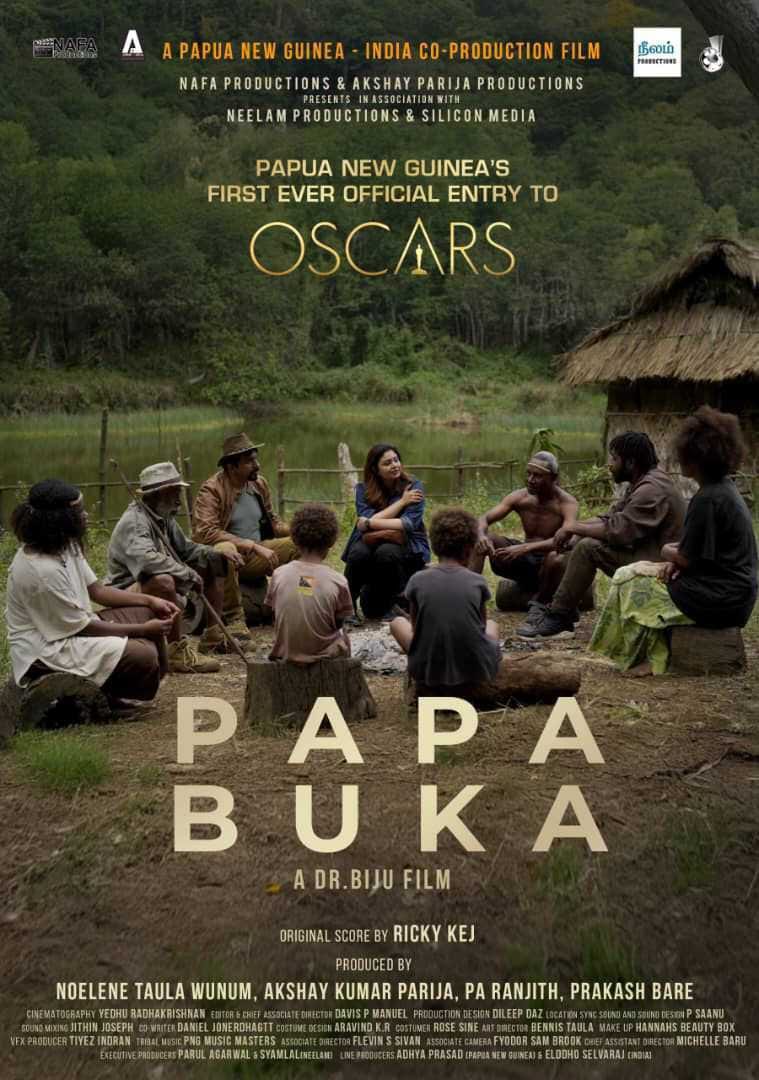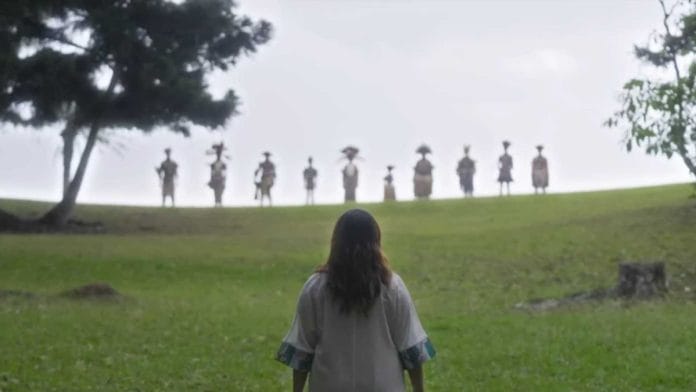New Delhi: Over the last few years, co-produced films have paved the way for independent filmmakers from India to be part of prestigious film festivals and awards. In 2024, All We Imagine as Light, an India-French co-production by Payal Kapadia, won the Grand Prix award at the Cannes Film Festival, and this year, Papa Buka, a co-production between Papua New Guinea and India, is an official entry for the Oscars 2026.
The film is Papua New Guinea’s first-ever submission for the Best International Feature Film at the 98th Academy Awards. The Tok Pisin-language drama film is co-written and directed by award-winning Malayalam director Bijukumar Damodaran. The movie follows the story of an elderly war veteran, Papa Buka, played by the 85-year-old tribal leader Sine Boboro. Buka helps two Indian historians, Romila Chatterjee (Ritabhari Chakraborty) and Anand Kunhiraman (Prakash Bare), to discover forgotten World War II events that link India and Papua New Guinea.
“My character is a historian who is writing a book, and researching on indigenous tribes there. But she is also looking for remains of her grandfather, who was in the country during World War II, and who never came back home,” said Chakraborty.

A neglected war
Chakraborty, who is a prominent face of the Bengali film industry, watched Bijukumar Damodaran’s Perariyathavar (2014) and met him when her film Onyo Apalaa (2015) was part of the Indian Panorama section that year at the India International Film Festival.
“I told him I wanted to work with him. I worked with him on Painting Life (2018), and then he again reached out for this (Papa Buka), and I said yes immediately,” said Chakraborty. She did not realise back then that she was cast for a project that would create history.
The film’s trailer shows Chakraborty’s character interacting with members of Papua New Guinea’s tribes, as she researches for her book. In one moment, standing in a forest, her character talks of how the people of the nation were pulled into a war that was never theirs.
Papa Buka tells Romila about the 250 Indian soldiers who were also killed there, as she observes the landscape and its people.
“The contribution of indigenous people in the war is neglected in history,” says Romila in another scene.
The film was developed for a period of four years, and was shot last year in August. Chakraborty, along with the rest of the cast, shot for the film for a period of 30 days in Papua New Guinea.
Also read: Rador Pakhi shows what few films dare to—unvarnished view of life with a genetic disease
Journey to Papa Buka
Chakraborty has been part of recent projects that deal with unconventional topics. From the Bengali heist action Bohurupi (2024), where she plays a woman struggling with bipolar disorder, to Grihosto (2025), which looks at agoraphobia, and now Papa Buka, the actor has been showcasing her talent across genres and languages.
“Over the period of time, my career has reached a point where I can choose to improve my craft, choosing certain roles and work. Boboro has never faced the camera before, and he had many interesting stories, and I learned a lot of fascinating history from him,” said Chakraborty.
Brahma Janen Gopon Kommoti (2020) had Chakraborty playing a female priest, who questions existing rituals that are discriminatory against women.
“Things changed after Brahma Janen Gopon Kommoti (2020), and I started being offered more serious, better roles. Makers started approaching projects that were not just commercial cinema. Papa Buka is also a culmination of that journey,” said Chakraborty.
Papa Buka was first initiated by NAS, a production company in Papua New Guinea. Soon after, prominent Indian names came on board, including filmmaker Pa Ranjith, actor-producer Prakash Bare, and Odisha-based producer Akshay Kumar Parij. The film will be released on 19 September in Papua New Guinea, aligning with its 50th year of independence. The music is composed by three-time Grammy winner Ricky Kej.
(Edited by Ratan Priya)






